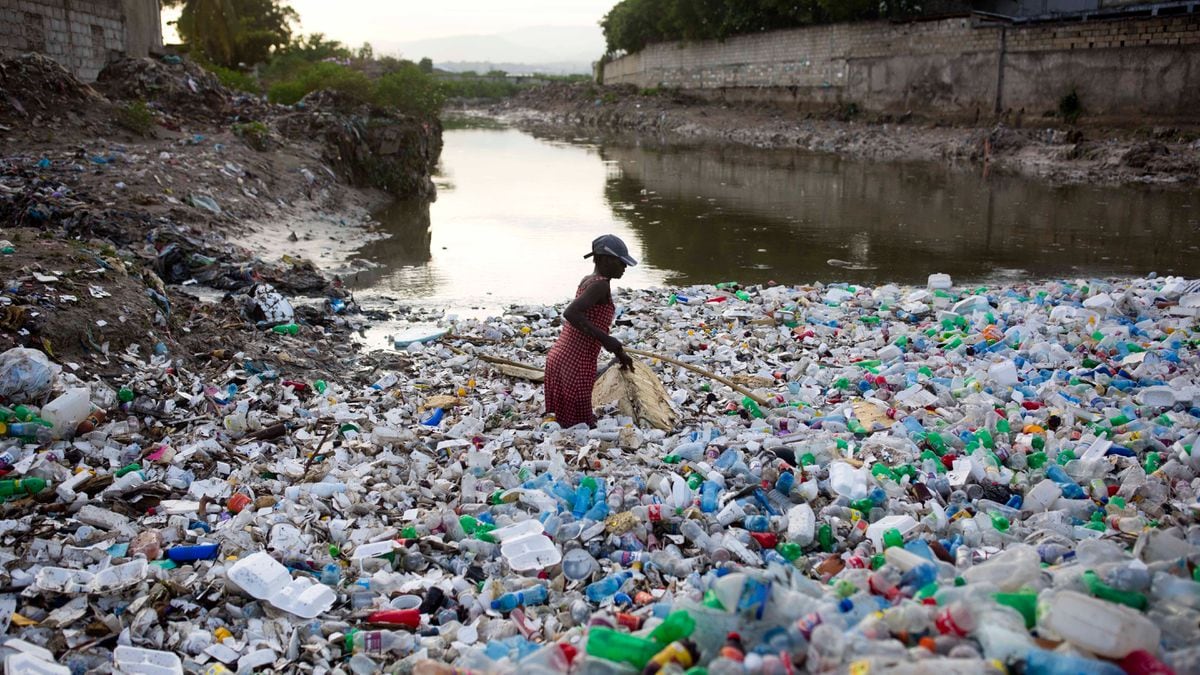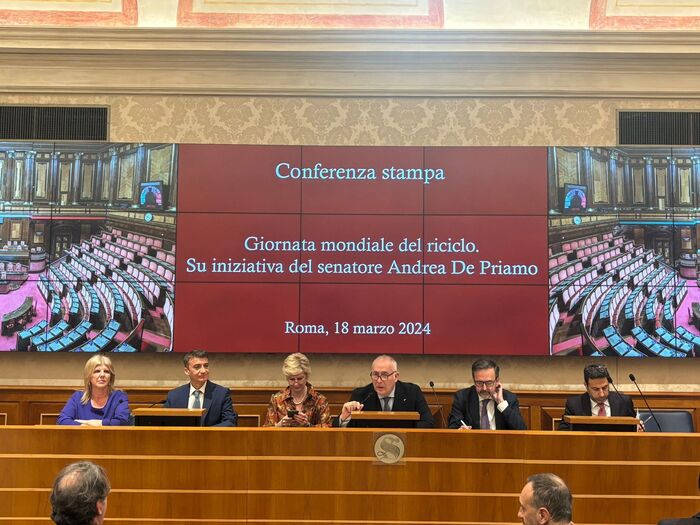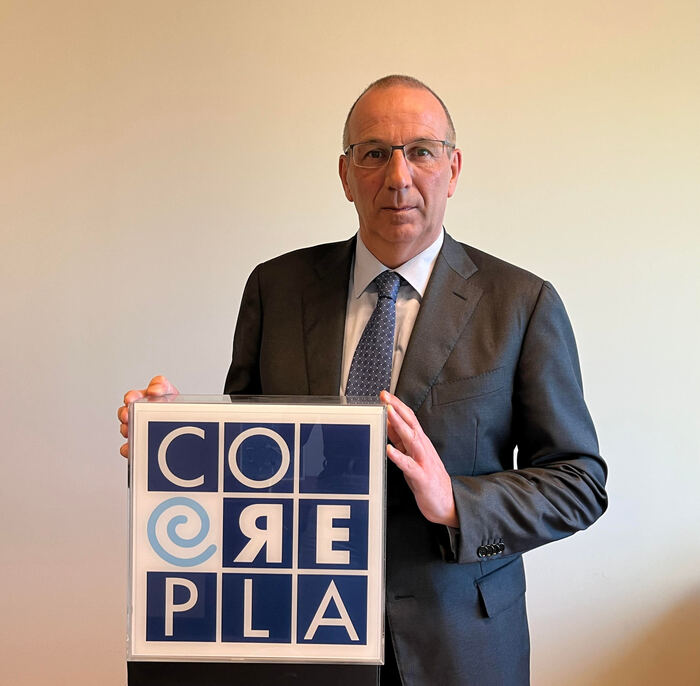Enlarge image
Garbage cans in Berlin:
which way to deal with plastic waste is the right one?
Photo: Jens Kalaene / dpa
The German recycling industry is worried: For some years now, many of the companies that want to make a contribution to environmental protection by recycling old plastic have received certain climate, environmental and energy subsidies from the EU. But these are now to be dropped. The EU Commission recently started a corresponding consultation process to change the guidelines in question - with reference to the EU's "Green Deal", which should be implemented more efficiently.
"If the EEG subsidies are removed from the plastics recycling companies, this is tantamount to a considerable weakening of the circular economy in this area," says Eric Rehbock, General Manager of the Plastics Recycling Association (bvse). "With this, the EU Commission is working against its own European plastic strategy." According to Rehbock, this strategy actually envisages laying the foundations for a new plastics economy in which the requirements for reuse, repair and recycling are fully taken into account in the design and manufacture of products. "How this is supposed to fit in with a weakening of plastics recycling companies is a mystery."
Background: The recycling companies emphasize the considerable effort that their business entails and that leads to high costs.
The recyclers first have to collect, clean and sort the plastic waste.
There is already a lot of waste because some things cannot be used due to poor quality or unsuitable colors.
The mechanical or thermal transformation of the plastic residues into a basic material that can be processed into new products is then very energy-consuming.
Many of the mainly medium-sized companies in the bvse association have an average electricity bill of around 800,000 euros a year, according to a spokesman for the association.
Recycled plastic is sometimes more expensive than new
A problem also arises from the competition between recycled plastic - so-called recycled plastic - with new plastic, with price developments playing a significant role on both sides.
Since oil is the most important raw material in plastic production, its price fluctuates very strongly, depending on where the oil price is going.
For example, the price of new plastic had dropped so much around the turn of 2020/2021 that it was even cheaper than recycled plastic.
In the meantime the oil price has risen again.
In addition, like many other parts of the global economy, the plastics industry is currently suffering from delivery problems that are driving up prices.
The result: the situation has reversed again, recyclates are currently cheaper than new plastic.
For many plastics processing companies this is a crucial connection.
New plastic cannot be replaced one-to-one with recyclates in every manufacturing area and for every product.
In many cases, however, this is possible, and then it is often said: What is cheaper is bought.
Brussels prefers chemical processing
What is also causing a stir in the recycling industry is the EU's plan to promote the so-called chemical treatment of plastic waste instead of reprocessing, through which old plastic is also to be returned to the value chain. "The chemical processing of plastic waste is actually old hat in the industry that is pulled over and over again," says Dirk Textor, chairman of the bvse. "It is currently being hyped under the label of chemical recycling."
Currently, plastics are mainly recycled using mechanical or thermal processes. In this procedure, which is also known as "material recycling", the plastic waste is sorted according to its type, washed, melted and processed into precisely those recyclates that serve as raw materials for new products and can therefore replace new plastics.
The chemical structure of plastics is retained in mechanical recycling - unlike chemical recycling, which has been researched for many years but has not yet made a breakthrough. One problem here is the high energy consumption that this process entails. There are more and more pilot projects for the chemical treatment of plastic waste. However, it has not yet been operated on an industrial scale. That could change with possible EU aid.
Environmentalists prefer another solution to the problem with plastic waste anyway: complete avoidance.
It makes much more sense to focus on avoiding waste and on ecological product design, writes, for example, the nature conservation association Nabu on its website.
Pollutants should be reduced during production.
In addition, a recycling-friendly design is required.
In this way, you could save yourself highly complex, energy-intensive and time-consuming treatment processes in the disposal phase.
cr











/cloudfront-eu-central-1.images.arcpublishing.com/prisa/KMEYMJKESBAZBE4MRBAM4TGHIQ.jpg)


